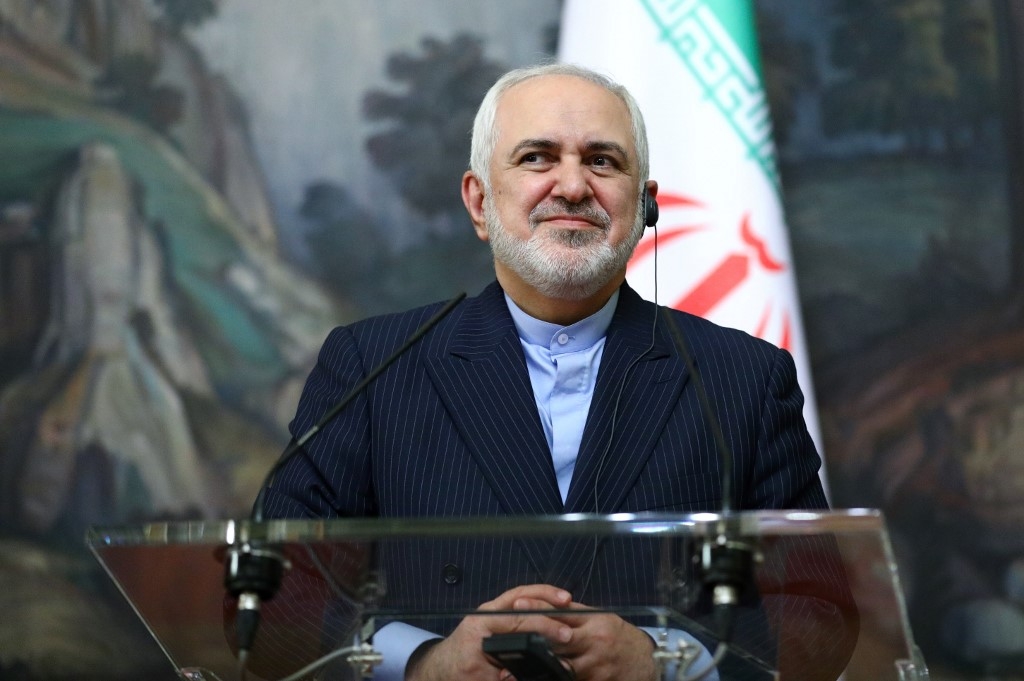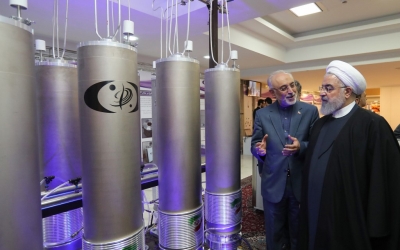'Victory': Iran hails UN court decision to hear case against US sanctions

Iran's foreign minister hailed a decision by the UN's top court on Wednesday that will allow it to hear a case brought by the Islamic Republic against the United States seeking to lift economic sanctions imposed by the Trump administration.
Lawyers for the US argued last year that the case should be thrown out by the International Court of Justice (ICJ), saying it was not within the UN court's jurisdiction.
But ICJ President Abdulqawi Ahmed Yusuf said in Wednesday's ruling that the Hague-based body had jurisdiction "to entertain the application filed by the Islamic Republic of Iran", rejecting US arguments about admissibility.
Former President Donald Trump unilaterally withdrew the US from a landmark nuclear deal in 2018 and then reimposed, and reinforced, a series of crippling sanctions.
Trump's "maximum pressure" policy has shattered the agreement, despite the continued participation of France, Russia, Britain, Germany, China and the EU, which were unsuccessful in attempts to rein in Washington.
Stay informed with MEE's newsletters
Sign up to get the latest alerts, insights and analysis, starting with Turkey Unpacked
"Another legal victory for Iran," Iranian Foreign Minister Mohammad Javad Zarif tweeted, adding that the ICJ "dismissed all US preliminary objections in the case brought by Iran over unlawful US sanctions".
Tehran filed the lawsuit in 2018, saying Washington breached the 1955 "Treaty of Amity", an obscure friendship treaty between the two countries that regulates and promotes economic and consular ties.
In a preliminary ruling in October 2018, the ICJ ruled that Washington should remove any restrictions on Iran related to the trade of medicines and medical devices, food, and agricultural commodities.
The Trump administration responded to that preliminary ruling by pulling out of the treaty entirely.
Iranian Foreign Ministry Spokesman Saeed Khatibzadeh also praised the UN court ruling and said the decision marked "the rightfulness of Iran's demands".
No changes to nuclear deal
Earlier on Wednesday, Iranian President Hassan Rouhani ruled out changes to the nuclear accord and dismissed calls to broaden the terms of the deal to include other countries in the region.
"No clause of the JCPOA will change. Know this. And no one will be added to the JCPOA," Rouhani said at a televised Cabinet meeting, using the deal's official name, the Joint Comprehensive Plan of Action.
US President Joe Biden has voiced support for returning to the deal, while insisting that Tehran first resume full compliance by reversing measures it took in protest of the sweeping sanctions imposed by his predecessor.
Last week, Biden appointed Robert Malley, who was instrumental in negotiating the JCPOA under former President Barack Obama, as his special envoy for Iran.
In an interview released on Monday, Secretary of State Antony Blinken said Iran was shortening the time it needed to acquire enough enriched uranium for a weapon.
The charged earned a rebuke from Zarif, who told CNN that Tehran was not seeking to build a nuclear weapon.
"Iran does not seek a nuclear weapon," Zarif said. "If we wanted to build a nuclear weapon, we could have done it some time ago. We decided that nuclear weapons will not augment our security and are in contradiction to our ideological views."
In that same interview, Zarif said the US did not have "unlimited" time to rejoin the deal. "The United States needs to come back into compliance and Iran will be ready - immediately - to respond," he said.
"If we are away from the strict limitations of the nuclear agreement, it's because the United States tried to impose a full economic war on Iran. Now, [if] it stops that, we will go back into full compliance."
Middle East Eye delivers independent and unrivalled coverage and analysis of the Middle East, North Africa and beyond. To learn more about republishing this content and the associated fees, please fill out this form. More about MEE can be found here.





